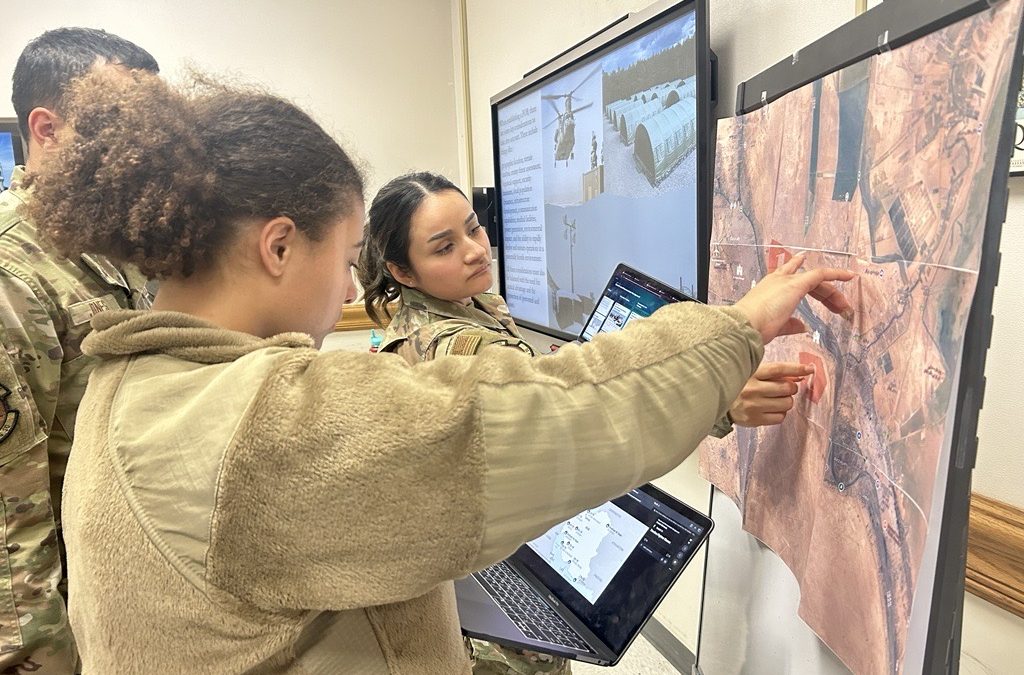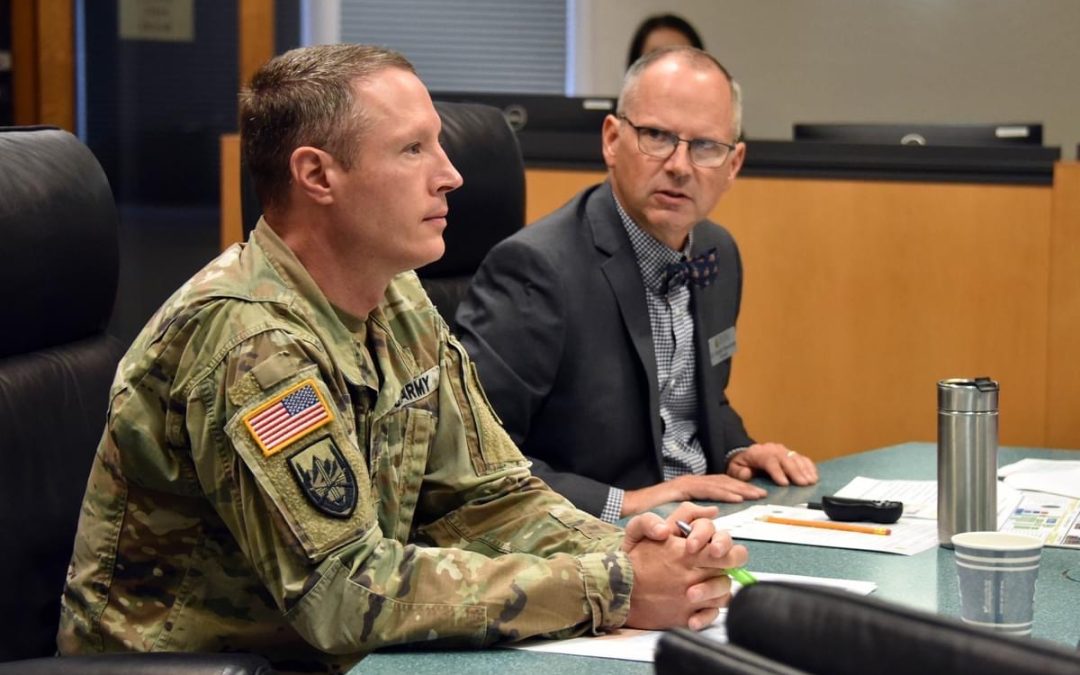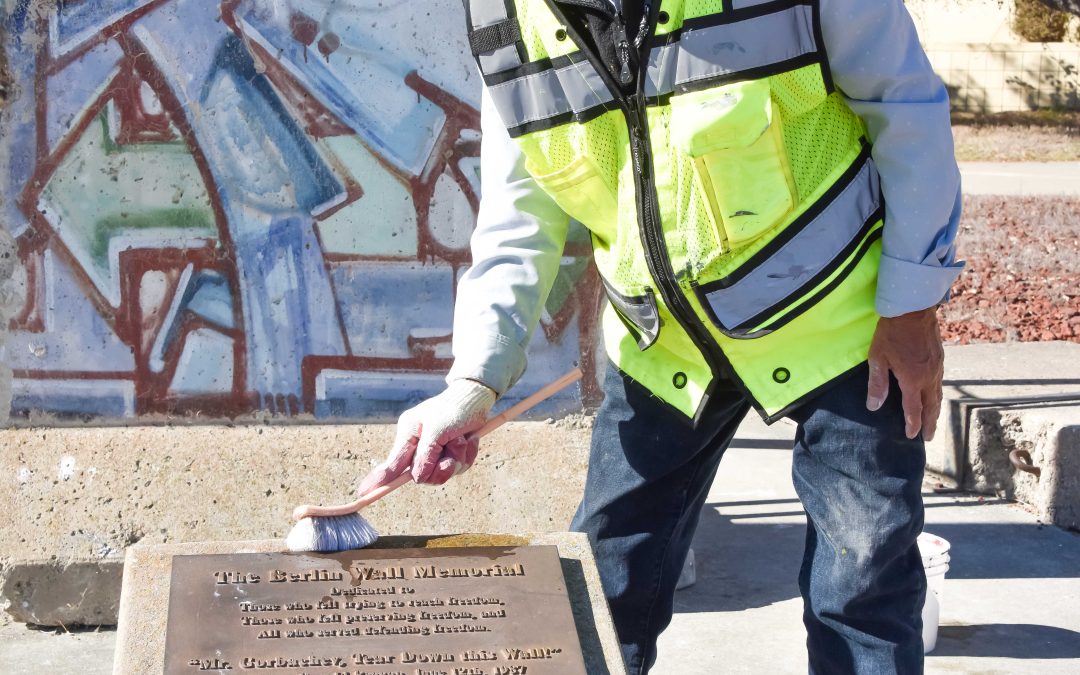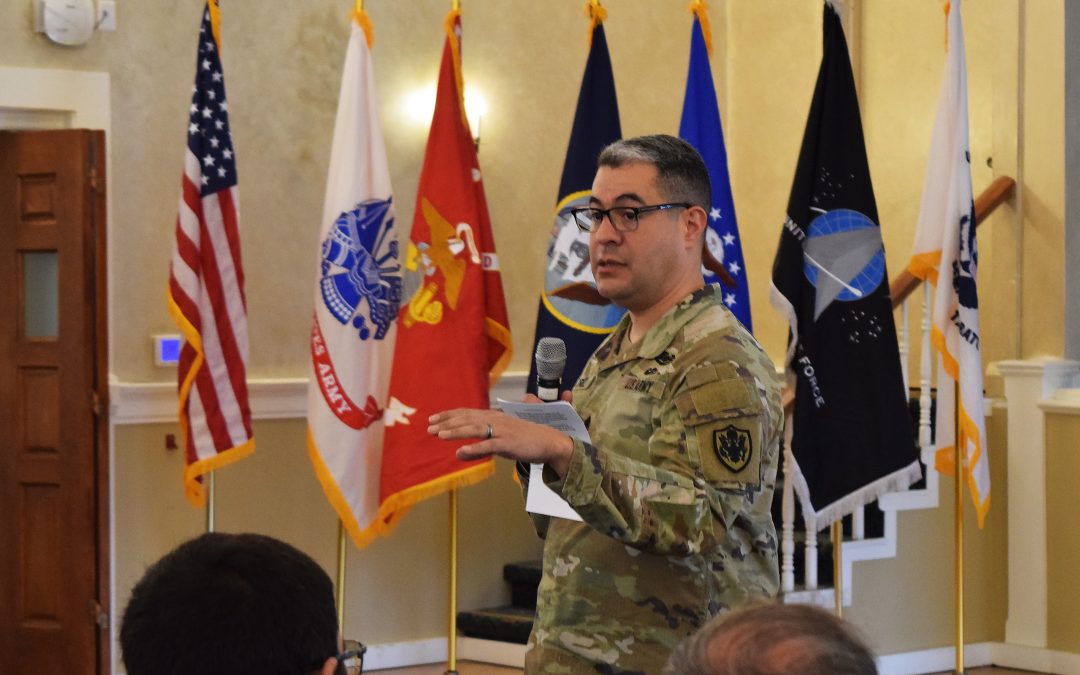MONTEREY, Calif., – The deputy commanding general of the U.S. Training and Doctrine Command, LTG David Halverson, told service members studying Chinese at the Defense Language Institute Foreign Language Center that the language and culture training they are receiving will be a “life skill” that will contribute to national security.
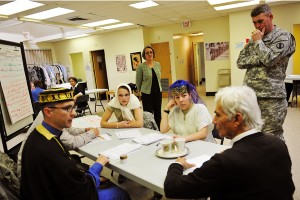 In a visit to DLIFLC on Feb. 20, Halverson spent a day touring the facilities at the Presidio of Monterey and, in addition to Chinese, observed an advanced Russian Defense Threat Reduction Agency course, watched the interaction of Persian Farsi and Arabic language students in an immersion setting, and received a brief about continuing education through distance learning, as well as predeployment training to the Services worldwide.
In a visit to DLIFLC on Feb. 20, Halverson spent a day touring the facilities at the Presidio of Monterey and, in addition to Chinese, observed an advanced Russian Defense Threat Reduction Agency course, watched the interaction of Persian Farsi and Arabic language students in an immersion setting, and received a brief about continuing education through distance learning, as well as predeployment training to the Services worldwide.
“It will be a life skill…and you will find that it will change who you are and how you see things… (you will) break down barriers…because today we are very globally connected and we have to make sure that we adapt… and that we apply it (cultural and language knowledge) properly,” said Halverson, addressing students who will be graduating this August after 64 weeks of intensive studies.
With Army transformation plans in full swing reflecting the changing geopolitical and strategic environment, TRADOC is the leading Army organization that will be implementing the new concept of Regionally Aligned Forces with the combatant commands via its 32 schools and more than half a million Soldiers trained each year.
“We have been at war for the last 12 years. It has been a war of the physical. …We are at that transition (time) here. In FY14 …we will have to be the Army of preparation. The Army of preparation is really from the physical to the intellectual and how we will invest …to focus on Regionally Aligned Forces as we want,” said Halverson.
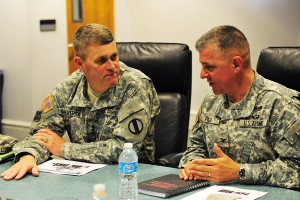 One of the major components of the Regionally Aligned Forces concept includes foreign language and culture familiarization training for service members that will be organized by specific combatant commands such as those in Europe, the Pacific, and Africa.
One of the major components of the Regionally Aligned Forces concept includes foreign language and culture familiarization training for service members that will be organized by specific combatant commands such as those in Europe, the Pacific, and Africa.
“I think it is an exciting time and I think that DLI obviously can help us with (defining requirements) … so that our Soldiers at all levels are much more effective when they go into an area and have both the culture and language skills,” said Halverson, adding that acquiring these skill sets would “ensure that we have the best trained force possible.”
Since 9/11, DLIFLC has expanded its reach beyond the Presidio of Monterey to support predeployment training for the General Purpose Force by establishing more than 30 Language Training Detachments throughout the world. While some of these detachments serve the continuing education needs of professional linguists, the LTD model has proven to be a successful model for language training that is shorter in duration, yet crucial for supporting successful missions abroad.
Story and photo credits
Story and photos by Natela Cutter, DLIFLC PAO
Photo 1: Deputy commanding general of the U.S. Training and Doctrine Command, Lt. Gen. David Halverson observes an Arabic immersion class at the Defense Language Institute Foreign Language Center’s facility in Seaside, Calif., Feb. 20 while on a day-long tour of the Institute.
Photo 2: Defense Language Institute Foreign Language Center Commandant, Col. Danial Pick, briefs Deputy Commanding General of the U.S. Training and Doctrine Command Lt. Gen. David Halverson, about the Institute’s language training mission Feb. 20.

